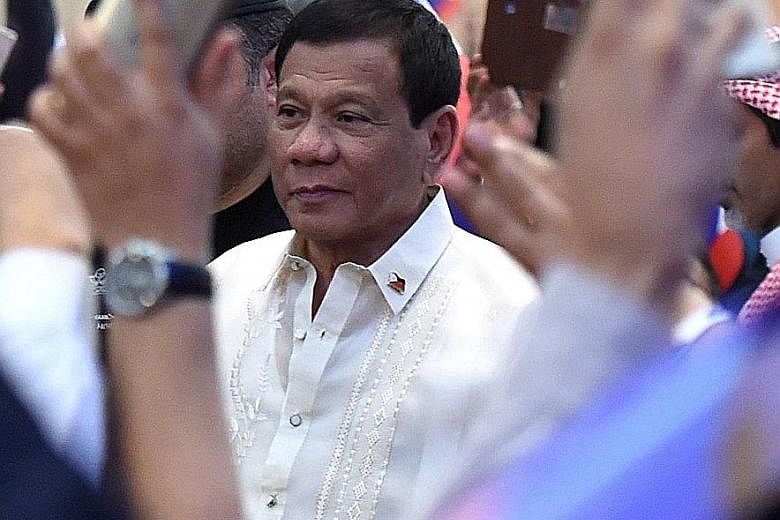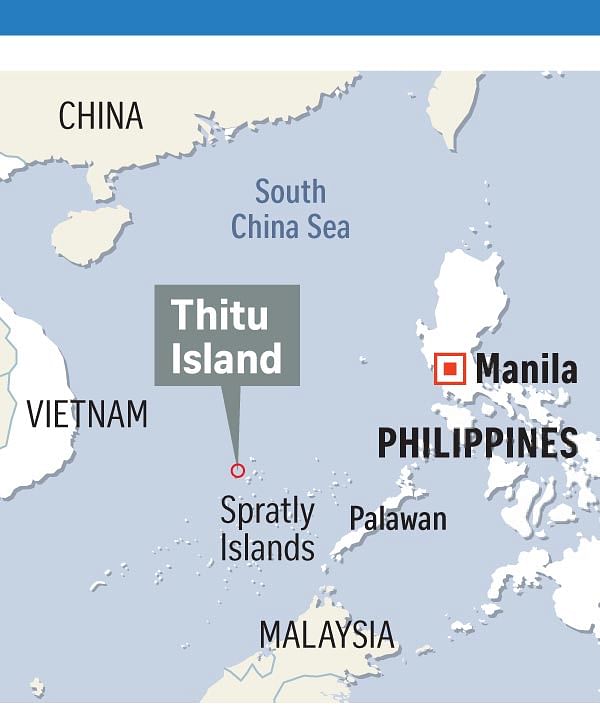RIYADH • Philippine President Rodrigo Duterte has retracted a vow to place his country's flag on an island in the Spratlys claimed by China and other states in the region.
"Because of our friendship with China and because we value your friendship, I will not go there to raise the Philippine flag," he told about 2,000 Filipinos on Wednesday during an official visit to Saudi Arabia.
"I will not go to any of the islands. Maybe I will send my son, just to show that our claim is clearly good for all generations of Filipinos," he said to applause.
China claims most of the South China Sea, through which about US$5 trillion (S$7 trillion) in ship-borne trade passes annually.
Brunei, Malaysia, the Philippines, Taiwan and Vietnam also have claims there.
Mr Duterte said Beijing warned him that "there will likely be trouble" if every head of state of the claimant parties were to go to the disputed islands and plant flags.
The Philippine President first threatened to plant a flag on April 6, when he told reporters: "I have ordered the armed forces to occupy all - these so many islands, I think nine or 10 - (and) put up structures and the Philippine flag.
"And on the coming Independence Day of ours (June 12), I might go to Pagasa island to raise the flag there. Even those (islands) that are vacant, let us habitate there."
Pagasa, or Thitu island, is the largest island administered by the Philippines in the Spratlys.
Mr Duterte's initial declaration confused many.
His spokesmen and the military later insisted that he meant they should upgrade the facilities on the islands and outcroppings that the Philippines already occupies.
Mr Duterte's declaration also apparently surprised China, which he has been wooing since he took office last June.
Critics had attacked Mr Duterte for supposedly failing to stand up for the country's claims.
However, the President said his setting aside of the territorial dispute opened the door for improved trade, investment and assistance from China.
In Riyadh, Mr Duterte again cited the export of Philippine bananas and pineapples to China, which resumed after he took a conciliatory stance towards Beijing.
With 760,000 Filipinos working in Saudi Arabia, the country is the second-largest employer of Philippine workers overseas.
The Middle East is also the second-largest source of remittances for the Philippines, with more than one million Filipino workers sending home US$7.6 billion last year.
From Riyadh in Saudi Arabia, which Mr Duterte called "a very important ally", Mr Duterte travelled to neighbouring Bahrain. He will finish his Gulf tour in Qatar. Those two countries are home to more than 300,000 Filipino workers, whose welfare Mr Duterte has made a focus of his trip.
AGENCE FRANCE-PRESSE, REUTERS


